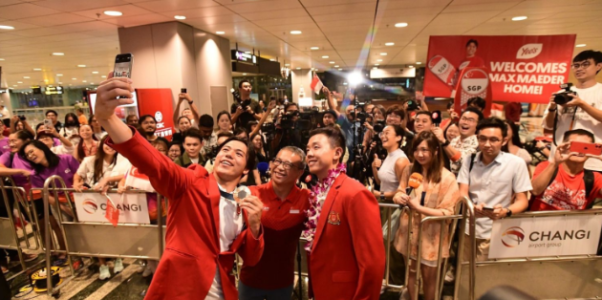Enhancements aim to streamline administrative processes and improve training efficiency.
SINGAPORE: The Singapore Armed Forces (SAF) is set to integrate smart technologies across all army camps to enhance administrative processes and allocate more time for training activities.
A key feature of this initiative will be a mobile application that enables servicemen to access camp, unit, and training information on-the-go. Additionally, servicemen will be able to return their arms and supplies by simply scanning them at designated kiosks.
This initiative follows successful trials conducted by the Singapore Army under its Smart Camp project, which tested various smart technologies in areas such as cookhouses, stores, armskotes, workshops, and mobile applications.
In a media release on Thursday (June 30), the Ministry of Defence (MINDEF) announced that these technologies will be introduced in Stagmont Camp in 2023, followed by Clementi and Kranji Camps in 2024, and will be rolled out to the remaining army camps by 2025. “The optimization of these essential daily routines will enhance the overall experience for servicemen,” MINDEF stated.
Moreover, a new platform called OneNS will replace the existing NS Portal, consolidating all NS-related digital services and transactions. This platform, set to launch in the second half of this year, will tailor digital services to meet the unique needs of each serviceman, ensuring timely access to relevant information and services.
Driving Digital Transformation
In response to the complex and uncertain security landscape, the SAF is actively pursuing digital transformation. To lead these efforts, the SAF will appoint a chief digitalization officer tasked with formulating a comprehensive digital strategy, establishing priorities for digital resources, and setting metrics for milestones in the SAF’s digitalization journey. The chief digitalization officer will report directly to the chief of defense force, as indicated by MINDEF.
Improving Training
To enhance training effectiveness, the SAF will leverage data analytics, virtual reality, and mixed reality technologies. The Singapore Navy plans to use data analytics to offer targeted feedback to learners. Starting in 2025, trainers will provide performance analyses at simulation centers, enabling more effective learning in areas such as warfare, navigation, bridge operations, and mission planning.
For the Singapore Army, a comprehensive training management portal will be gradually implemented across all units this year. This system will utilize data analytics to optimize resource allocation and planning for training outcomes, significantly reducing administrative burdens.
Meanwhile, the Republic of Singapore Air Force (RSAF) is adopting technologies like virtual and mixed reality to enhance training efficiency. An example is the SPYDER missile loading training simulator, which creates an immersive virtual environment for trainees to practice missile loading procedures under various scenarios. This simulator allows for training regardless of external conditions, thereby improving overall safety and effectiveness in training, according to MINDEF.








